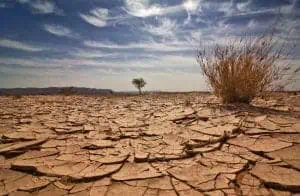
Many people experience dry skin, known to doctors as xerosis cutis, at some point in their lives. Dry skin occurs when the skin loses too much water or oil, making the skin flake and feel tight. It may also itch or crack. But what are the root causes of dry skin?
The list is long. It could be that the soap you use is too harsh, the baths or showers you take are too hot or the air you’re living in is too dry. Or it could be something else entirely.
If you’ve been struggling with dry skin and can’t figure out why, consider these potential triggers.
Environmental causes
The world around you can conspire to rob your skin of water and oil.
The weather. Many people are plagued by dry skin in the winter due to colder temperatures and lower humidity. Dry skin can be a year-round problem for those who live in a cold climate or a hot, low-humidity climate.
Indoor heating. In winter you spend more time indoors, where you’re exposed to dry, heated air. Heating indoor air — whether via central heating, a fireplace, a wood-burning stove or space heater — lowers the humidity and saps moisture from your skin.
Sun exposure. Heat from the sun also leaves skin parched. If you’ve accumulated a lot of sun damage, your skin may look dry and rough all the time.
Lifestyle causes
Some of your daily habits could be contributing to dry skin.
Frequent bathing. Long and/or hot showers and baths break down the skin’s lipid barrier, which seals in moisture.
Harsh soaps and detergents. Deodorant and antibacterial soaps rob the skin of natural oils. Even a caustic laundry detergent can trigger dry, itchy skin.
Harsh facial skincare products. If you’re using certain acne products or a high-concentration retinol product, for example, you may see dry, flaky skin on your face.
Smoking. Smoking accelerates the aging process in several ways and can lead to dry, coarse skin.
Frequent hand washing. People who must wash their hands frequently, such as healthcare professionals and cooks, are vulnerable to dry skin. Constantly wetting and drying your hands can break down the skin barrier. And when any water that remains on the skin evaporates, it reduces oil in the skin. This is also why handwashing is a common hand eczema trigger.
Exercising outdoors. If you do most of your workouts outdoors, your dryness may be due to exposure to the sun and wind, which causes moisture to evaporate from your skin.
Swimming in pools. Swimming in any pool can dry out the skin. A heavily chlorinated pool can dry it out even more thanks to the chemicals in the water.
RELATED: How to Heal Dry, Cracked Hands
Genetics and aging
People who have fair, brown or black skin are more likely to develop dry skin than those who have a medium complexion, such as those with a Mediterranean background. Genetics may also dictate how well your skin barrier functions.
As you age your skin produces less sebum, the oily substance that protects the skin and keeps it moisturized. For women, the most dramatic drop in sebum production occurs in their 40s and continues to decline from there. Loss of sebum production happens later in life for men.
Medical causes
Certain medications. Dry skin is a side effect of several types of drugs, including certain drugs used to treat high blood pressure, high cholesterol, allergies, and acne.
Vitamin and mineral deficiencies. Being low on zinc, vitamin A, vitamin D, niacin or iron can make your skin dry. People who are malnourished in general, including those with anorexia, are susceptible to dry, yellowish skin.
Certain skin conditions. Dryness often goes hand-in-hand with eczema, seborrheic dermatitis, psoriasis and fungal infections such as athlete’s foot.
Diabetes. Dry, scaly skin is common in people with diabetes. In fact, skin changes are sometimes the first sign a person has the disease. When blood sugar levels are high, the body pulls fluid from cells in order to make enough urine to excrete the sugar from the body. As a result, the skin becomes dry. Other causes of parched skin include in people with diabetes include fungal infections and nerve damage, which can interfere with the production of skin-softening perspiration.
Hypothyroidism. An underactive thyroid can cause dry skin. The thyroid hormones regulate many bodily functions, including the turnover of dead skin cells. When thyroid hormone levels are low, it takes far longer for dead skin cells to be shed and replaced by new ones, so skin looks dry and flaky.
Kidney disease. People in the later stages of kidney disease develop extremely dry, often itchy skin that feels rough and cracks easily. The cause is chronic dehydration and, in the end-stage of the condition, shrinking sweat and sebaceous glands.
HIV. Because people with HIV have a weakened immune system, they’re more likely to develop certain skin conditions that cause dryness, including seborrheic dermatitis and fungal infections.
For most people, using the right moisturizer, switching from soap to a gentler cleanser in the shower, choosing a hydrating facial cleanser, and shortening showers and baths goes a long way toward helping the skin retain the moisture it needs. A humidifier can help solve the problem of dry indoor air.
But if your dry skin continues, or you’re not sure what’s causing it, your dermatologist can take a medical history, perform a skin evaluation and devise a treatment plan for you.
Article Written By: Jessica Brown, a health and science writer/editor based in Brooklyn, New York. Her work has appeared in Prevention, Johnson & Johnson, the Breast Cancer Research Foundation and many more.





